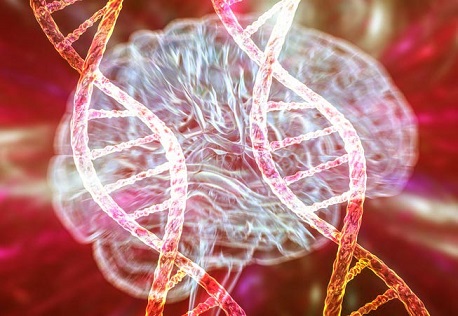Indian researchers find that microRNA-30b-5p and Let-7a-5p play a role in COVID-19-related brain inflammation
Nikhil Prasad Fact checked by:Thailand Medical News Team Aug 09, 2024 7 months, 3 weeks, 6 days, 13 hours, 34 minutes ago
COVID-19 News: New Insights from Indian Researchers
Researchers from the ICMR-National AIDS Research Institute in Pune, Maharashtra, India, have unveiled new insights into the role of microRNAs in neuroinflammation caused by SARS-CoV-2, the virus responsible for COVID-19. This
COVID-19 News explores their findings, which could pave the way for new therapeutic approaches to mitigate neurological complications associated with COVID-19.
 Indian researchers find that microRNA-30b-5p and Let-7a-5p play a role in
Indian researchers find that microRNA-30b-5p and Let-7a-5p play a role in
COVID-19-related brain inflammation
The Study at a Glance
Using advanced bioinformatics tools and RNA-sequencing, the research team identified two microRNAs, microRNA-30b-5p and let-7a-5p, that play a critical role in the inflammatory response triggered by the SARS-CoV-2 spike protein in microglial cells. Microglial cells are a type of immune cell found in the brain that become activated during infections and injuries, leading to inflammation.
Why This Research Matters
COVID-19 is known primarily as a respiratory illness, but it also affects other organs, including the brain. Many COVID-19 patients experience long-term neurological symptoms such as brain fog, headaches, and even stroke. These symptoms, collectively referred to as long-COVID, can persist long after the initial infection. Understanding the molecular mechanisms behind these symptoms is crucial for developing effective treatments.
Key Findings
The study revealed significant changes in the expression of certain microRNAs in microglial cells exposed to the SARS-CoV-2 spike protein. Specifically, microRNA-30b-5p and let-7a-5p were significantly upregulated, meaning their levels increased in response to the spike protein.
-MicroRNA-30b-5p: This microRNA was found to be upregulated in SARS-CoV-2 stimulated microglial cells, suggesting its role in the inflammatory response. Previous studies have linked microRNA-30b-5p to various inflammatory processes in other diseases.
-Let-7a-5p: This microRNA also showed increased expression levels. Let-7a-5p has been associated with regulating immune responses and inflammation in several viral infections.
Bioinformatics Approach
The researchers used a comprehensive bioinformatics approach to understand the pathways and interactions involved. They identified several key pathways that were affected by the upregulation of these microRNAs, including the MAPK, PI3K-AKT, and Ras signaling pathways. These pathways are crucial in regulating inflammation and immune responses.
The study also highlighted the interaction between microRNAs and their target genes. For instance, the microRNA-30b-5p was found to interact with genes involved in the PI3K-AKT pathway, which plays a vital role in cell survival and inflammation. Similarly, let-7a-5p was linked to the regulation of genes in t
he MAPK pathway, known for its role in cellular responses to stress and inflammation.
Experimental Validation
To validate their findings, the researchers conducted real-time PCR experiments to measure the levels of these microRNAs and their target genes in SARS-CoV-2 stimulated microglial cells. They confirmed the upregulation of microRNA-30b-5p and let-7a-5p and observed increased levels of pro-inflammatory cytokines such as IL-6, TNF-α, and IL-1β. These cytokines are known to contribute to inflammation and have been implicated in COVID-19-related neuroinflammation.
Potential Therapeutic Implications
The findings suggest that targeting these microRNAs and their associated signaling pathways could offer new therapeutic strategies for managing neuroinflammation in COVID-19 patients. By modulating the levels of microRNA-30b-5p and let-7a-5p, it may be possible to reduce the inflammatory response in the brain, potentially alleviating the neurological symptoms of long-COVID.
The study also identified potential drugs that could interact with the key genes regulated by these microRNAs. Resveratrol, diclofenac, and rapamycin were highlighted as potential candidates based on their ability to modulate the identified signaling pathways. These drugs have shown promise in reducing inflammation in various conditions and could be repurposed for treating COVID-19-related neuroinflammation.
Conclusion
This study provides valuable insights into the molecular mechanisms underlying COVID-19-related neuroinflammation. By identifying the key roles of microRNA-30b-5p and let-7a-5p, the researchers have opened new avenues for developing targeted therapies to manage the neurological complications of COVID-19.
The study findings were published in the peer-reviewed journal: International Journal of Biological Macromolecules.
https://www.sciencedirect.com/science/article/pii/S0141813024051341
For the latest
COVID-19 News, keep on logging to Thailand Medical News.
Read Also:
https://www.thailandmedical.news/news/covid-19-causes-the-upregulation-of-neuroinflammation-associated-genes-in-the-brain
https://www.thailandmedical.news/news/the-role-of-mast-cells-in-sars-cov-2-induced-neuroinflammation
